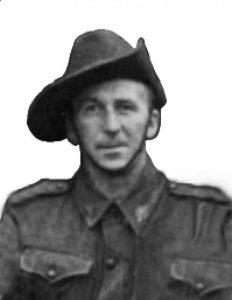Thetkaw 14 km Camp - Burma
Thetkaw 14 km Camp – Burma
The Railway, which was 421 kms long of single track and 1m gauge, was constructed in a little over 12 months.
Green Force 1 December 1942 to 28 March 1943
Green Force arrived by truck from Kendau 4km Camp.
Thetkaw Camp area had to be cleared before hut construction. The huts were well spaced but lice in the camps at night was so bad that many POWs slept outside in the cold, risking a bashing by Japanese guards.
The dry season was beginning and the heat from the sun began to ‘bite’. The work was dry and dusty. Many of the men were without water bottles and this became an additional daily problem.
Strict camp hygiene regimes were adhered to, but still the camp was filled with hoards of flies and the number of diarrhoea cases increased daily. The Japanese introduced a daily fly quota for each mean which had to be delivered to “the fly catcher”. Armed with various shapes and designs of fly swats and other inventions the men found it was it was less stressful to begin a recycling programme and substitute each day’s catch for the next day’s quota.
The guards were now mostly Koreans.
It was a long trek to and from the Camp and as the line extended, their trek to work became longer each day, The sick and exhausted were relentlessly beaten by the guards. At the end of the day all tools had to be returned and accounted for – a painful process, this was followed by tenko – which often was a slow process of counting by the guards many of whom seemed not to be able to count. This procedure was simply the last straw for the exhausted and sick men.
‘POWs who had reported sick on morning parade were not excused and sent out to work on the line or to make up numbers. Many of these sick men were carried back to camp at nightfall on the backs of their mates too weak and ill to walk. Worse was realising tomorrow would be no different than today!’ these words were spoken by Wally Lynn.
They then had go to wash and clean up at the tong, collect an sterilise their eating utensils, wait in line for their evening meal of rice (or if lucky some form of soup), then check on mates and other nightly chores before they could collapse on their bamboo slat ‘beds’ a precious space of 2 feet by six feet. This pattern of self discipline was to be their only support in the horror story that was then unfolding for them. The men took every opportunity to shave no matter what the tool was whether table knives, blunt razor blades or whatever was to hand” from “Ghosts in Khaki” by Les Cody.
Once the heat of the sun was gone the temperature dropped. From the early hours in the morning until dawn the men found it bitterly cold. Few had blankets and some had not even a rice bag to cover themselves. The men risked being bashed and sacrificed precious sleep to sit huddled around the fire outside at the end of their hut. They were exhausted, hungry and often ill. Worse they knew tomorrow was another day of drudgery, the same as the one just passed.
How difficult was it to keep their spirits alive? How would we from today’s world manage in their places?
The Force was then to move to 75km Camp into much higher ground. Work and Camp conditions again much like 14km camp however the infections and tropical ulcers increased and the general feeling of the men was their deep concern for their immediate and long term future as well as about concern for their families in Australia. (Remembering the POWs were isolated without news of any kind from the outside world).
WX14226 Lance corporal Arthur A.M. Brazier was evacuated sick from Thetkaw 14 km Camp on 3 March 1943 to Thanbyuzayat Base Hospital Camp where he sadly died of bacillary dysentery on 18 March 1943.

Christmas 1942 – ‘A’ Force Burma
Aside from the working conditions, illness, etc there was a group wondering what entertainment could they present to POWs for Christmas. (In most camps, the Japanese acknowledged the importance Christmas – giving POWs extra time off and permission for entertainment). Christmas 1942 would be their first as prisoners of war. For many of the young troops it would be their first Christmas away from home.
A choral group under the direction of Sgt Norman Halliday had developed. POW Tom Morris who had joined the choir, remembered that one of their contributions to a camp concert was a selection of Negro slave spirituals.
Soldiers that were in this camp
Location of Thetkaw 14 km Camp - Burma

